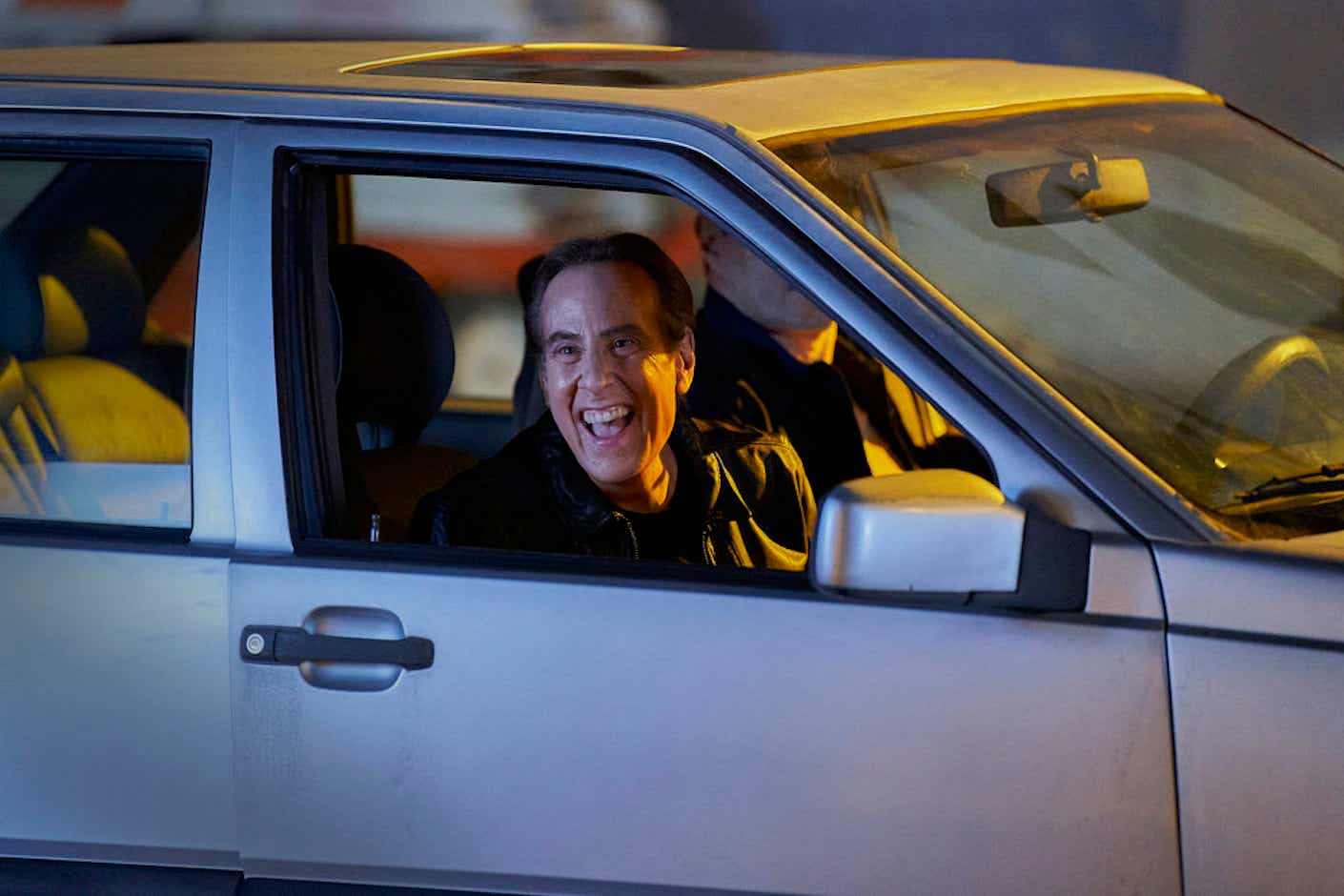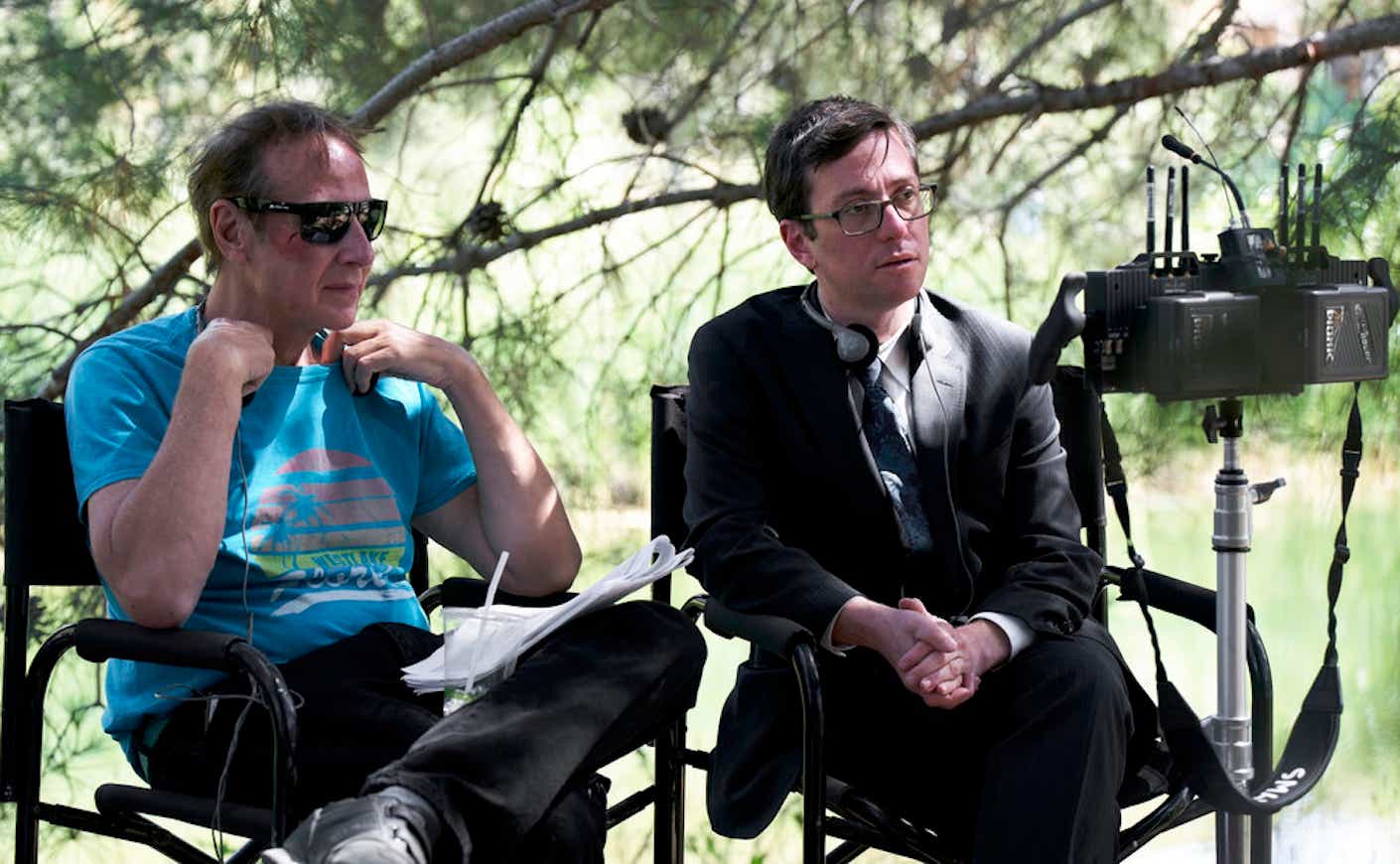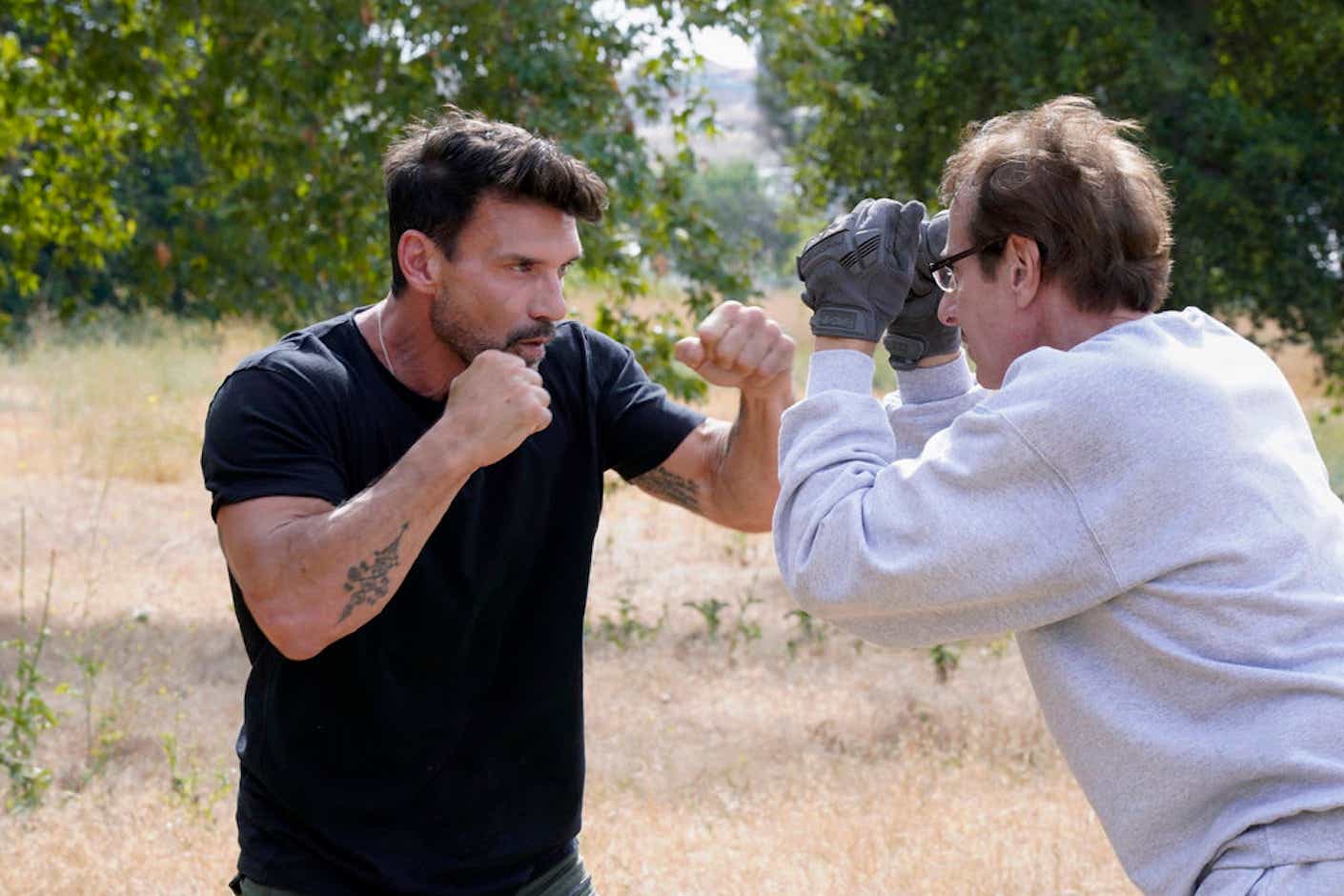Documentary fans are used to delving into a slice of reality, but what happens when a viewer can’t figure out if what they’re watching is even real? That might sound like an unpleasant viewing experience, but when it comes to the new Peacock docuseries Paul T. Goldman, it’s a rollercoaster that’s unbelievably gripping, hilarious, and truly rewarding.
Paul T. Goldman is the pseudonym for a real person named Paul Finkelman, an average yet eccentric man who was scammed by his ex-wife. The story goes like this: Paul is a regular guy selling insurance in Florida — a divorced single dad looking for love who meets a woman online. She says all the right things about prioritizing family and wanting to settle down. They get married after a few months, and things are going well… Until he realizes she’s scamming him out of thousands of dollars and has a boyfriend on the side. Sadly, this isn’t uncommon these days, but what happens next is the stuff of true-crime fantasy.
Trying to catch his wife in a lie, Paul comes to the improbable conclusion that she’s a madam who runs an international sex trafficking ring with the help of others, including her pimp boyfriend. He hires private investigators and mediums to help him get to the bottom of the caper. It all sounds unbelievable, and Paul gets that, so he decides to milk it: In 2009, Paul writes a book, followed by a screenplay, based on his experience with his duplicitous ex. Then he pesters a bunch of filmmakers on Twitter until he gets the attention of Jason Woliner (director of the 2020 movie Borat Subsequent Moviefilm).
Over the next decade, Woliner filmed Paul in typical documentary style. And when it came time to put together the Peacock series, Woliner interspersed those interviews with scripted scenes that Paul wrote, featuring real actors (including Frank Grillo and Rosanna Arquette). Who plays Paul? He does, naturally. “No one could play Paul T. Goldman better than Paul T. Goldman,” Woliner told us in a recent interview.
The result is a drama/docuseries revolving around a person so unbelievably over-the-top, the end result verges on phony. “He has this specific personality,” Woliner said. “He’s one of those guys that you see and think, Oh he’s a character. And part of this process is trying to get to the human underneath.” That’s perfectly demonstrated when they’re filming a scene from the book in which Paul’s fears about his ex are confirmed, and he’s smiling uncontrollably through the whole take, until Woliner points out that it doesn’t make sense for him to be smiling at that point.

Moments like these will make you pause to check the show description to make sure you didn’t misread: “Did it say MOCKuseries?” Nope.
Paul believes his wild tale is a true story, but even that assumption starts to unravel as Woliner digs deeper. Woliner’s role as a director eventually evolves into that of a pseudo-therapist and detective, and he becomes an integral part of the series.
It becomes a dynamic show that combines comedy, crime, and heartfelt humanity. It’ll leave you questioning why you watch true crime shows, how real documentaries actually are, and if Paul himself is the ultimate scammer. The series finale, which aired Sunday and was filmed up until last month, leaves lots of unanswered questions. So to fill in some of the blanks, we turned to Woliner — who still doesn’t have all the answers.

Katie Couric Media: I’m a little stumped: Can you break down what was real, what was scripted but based on reality, and what was completely fake, if anything?
Jason Woliner: When I met Paul in 2012, he had written his book Duplicity: A True Story of Crime and Deceit, and he presented everything in that as true. Part of the show is me trying to determine what was true and what was incorrect. Maybe he understood things wrong or remembered wrong, or maybe things weren't exactly as he understood them to be. The scenes we filmed were based on his first book, and he believed those to be accurate.
It's not like Paul is crazy and this whole thing is fake. Some people online have been wondering, “is it gonna be revealed that the whole thing is fake?” But no, Paul’s a real person.
What did you believe was true when you first met Paul?
It wasn’t like I found the story and was like, “OK, this can't be true. This is all fake.”
I do believe Paul was in this marriage with this person who was leading a quote-unquote double life. Whether it was an escort service, or just a Florida swinger's lifestyle, was always unclear to me.
I went in knowing nothing except what I had read in the book and thinking maybe this could all be true. I was unraveling it myself up until the very end when we finally found some of the real players involved and we were able to really clear things up. We were worried when we reached out to the supposed pimp Cadillac McDaniel, who Paul calls “Royce Rocco” in the book — we considered them to possibly be dangerous criminals because all I had was the picture that Paul had painted.
As we filmed the series, we were lucky enough to track down “Royce Rocco,” and of course, he was the friendliest person, just an extremely likable guy. That's not to say that I think he's telling the truth about everything, but he was undoubtedly charismatic. And based on interviews with him and some of the other characters accused in the book, we determined that this whole thing about Paul’s ex running a human trafficking ring was probably incorrect.
When did your confidence in Paul’s detective work start to crumble?
In the big interview I did with him in 2014, which took many hours, I found out that he elaborated some stories in the book — like, his wife didn’t really throw lo mein at his head when he asked for a divorce. But at that time, he said that 99 percent of his stories are true — then adjusts that to 97 percent. In terms of the criminal allegations in his story, I really didn't have a firm opinion on what was real or not until we really went down to Florida a few months ago and did the legwork.
To me, it was never just about proving that Paul was wrong, or not telling the truth about certain things. It was much more about figuring out if he was incorrect about something, or not conveying a picture that lines up with what I think is the truth. I wanted to explore how important is it to live in a reality that matches other people's, or objective, reality? That was more interesting to me.

The series also features produced scenes starring Paul as himself, and actors portraying the people in his life. I understand that the scenes are pulled from his book, but was there ever a point where you were planning to make a scripted drama series out of this book?
At the very beginning, Paul reached out to me and many others saying that he had written a book and a screenplay. I read the book and fell in love with so much of it. And at first, I thought, Maybe this could be a scripted movie about this kind of “character” trying to take down a crime ring. That’s funny — almost like Taken, but with a nebbish goofy guy. But then I met him a few months later and then I realized, oh no, Paul is the story here. Paul is the interesting thing. What I'm really obsessed with is him.
So from very early on, I knew the best way to convey what I found so fascinating about him was by filming Paul’s scenes from his screenplay and his other writing, starring him, and showing the process. But at the same time, I didn't want it to feel like a prank or mean-spirited. So I kind of let him steer.
So what did he think was being made the whole time?
He knew exactly what was being made, in a very practical sense. By the time we were shooting, he knew we were shooting dramatized scenes from his writing and pairing that with the interviews with him, and the real people involved.
I told him we'd have cameras shooting all the time and we were gonna try to find some honest truth. Of course, there are differences between the way he would have edited the show and how I edited it.
When I finally showed him the show, and that moment is in the last episode, I had no idea how he’d react. And you see him asking why we had to show certain things, and saying that he would have done it differently. But in the end, he absorbed it and I thought he reacted very honestly, it was really mature and inspiring.
Why did you respond to him in the first place?
That's a good question. I think it’s just the nature of my personality to go down an internet rabbit hole. It was 2012, Twitter was a different thing. It was fun — pre-Musk, pre-Trump. I watched his video and followed his Twitter for a while before I reached out. And then I bought his book and after I read it I was all in. I'm sure everyone else he contacted ignored the tweet. What kind of put a fire under me was that I saw he kept tweeting at now-disgraced director Brett Ratner, who wrote back to him, “Send me the book.” And I thought, Oh no, what if this guy options it and I miss out? So that’s when I emailed Paul.
Part of me thinks you might have gotten scammed. Is there any chance Paul’s story is entirely made up because he wanted to become famous? Maybe that’s why he handled the finale so well.
I don't think so, because when I was able to show him what we discovered, the way he reacted was so honest and raw. And it was really one of the only times that he wasn’t doing “Paul T. Goldman.” He’s one of those guys that you see and think, Oh he’s a character. But I don't think he was performing in that moment. He absorbed the new information and it was almost like watching his brain change its shape. He realized, “This whole thing I believed for a decade and a half looks like it's not true.”
I think he did really believe it up until then, but the belief was based on a few slivers of evidence. I always assumed there would be a reasonable explanation for what happened or just some kind of Florida shadiness, but probably not a big sex-trafficking ring. Of course, it turned out to be none of that.
He appeared on Jimmy Kimmel with Seth Rogen, who co-produced the series, and Jimmy asked Paul if he’s still single. He said he is, and for anyone interested to message him on Twitter, which Seth pointed out could just “make the same thing happen all over again.” Do you think that Paul is susceptible to scams? Do you worry that it will happen again or that he’ll fall for a different type of scam?
I don’t know. I don't think there's any more I could have done to prevent something like this from happening to Paul again. Part of the show is meant to make a viewer wonder, Is this show just an example of this happening again? Did Paul give me too much power in telling his story, and what are my intentions? And I think they're clear by the end, but I wanted people to see that Paul is still a very trusting person.
What’s your relationship with Paul now?
I like Paul. I've known him for a decade and I consider him a friend, we talk every day. I really was trying to do right by him.









